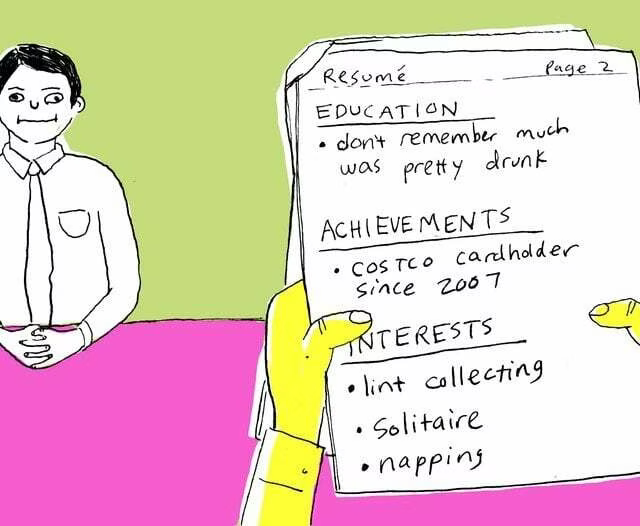Losers Exist, Don’t Hire Them

This is an internet re-post of a piece by Bryan Goldberg that is no longer available online.
–
by Bryan Goldberg
About a year ago, my sales operations team needed to hire an Account Manager. We had a handful of candidates in the interview pipeline, but one of them had far more relevant experiences than the others. So we interviewed him first, in hopes that it might save us a bunch of time.
He passed the first wave of the gauntlet, earning positive marks from a Director in our group, and he was also well-reviewed by the peers who he would be working alongside. "He’s been doing this for five or six years, and he can definitely achieve what we need from him," was the consensus.
But then it was time for him to interview with me. I didn’t ask him very many questions about sales, advertising operations, invoicing, collections, or any of the handful of other tactical skills we wanted. I just grilled him on the bottom fourth of his resume — you know, the one about hobbies and college.
And when I asked him about his BA in English, which he had earned about five years earlier, he got nervous. "What was your favorite century of English literature," I asked. But he hadn’t really focused on any particular era. Nor did he have an opinion.
"Did you have a particular affinity for poetry, drama, old novels?" He punted on that one too.
"Well, what was your favorite book? Or your favorite author?" He stared at me somewhat blankly.
"Oh, well, there were a bunch. None that really jump out at me right now. It was kind of a long time ago, you know? My memory is a bit hazy," he said with a chuckle, before talking about how fun college was. I laughed politely, wrapped up the interview in 15 minutes, and informed the team that we would not be hiring this candidate.
Many fine professors and senior executives have written reading about team-building and how to be a great manager. At some point, I will write about this meaty topic for PandoDaily. But here’s an amuse bouche until then:
Don’t hire losers.
They might be able to do the job for which they are hired. But that is not good enough. Especially at a startup where you are able to hire a lot fewer people than you would like.
As it turned out, we eventually did find someone for that position, with a lot less relevant experience. But she learned the job in about six weeks, and her upside enabled her to take on a lot of the unforeseen — and valuable — tasks that the previous candidate would have stumbled around.
And the good news is that it’s really easy to detect losers. Here are some things you can ask a potential candidate to find out:
"Tell me about what you studied in college, and what were some of your favorite classes?" A person who spent $120,000 and dedicated four years of their lives to any pursuit better be able to speak eloquently for five minutes on that humongous experience. Or else they are a loser.
"Tell me about your hobbies…" A person who has no hobbies, and can’t even exaggerate one, almost certainly lacks the ambition to make your company valuable. They are probably a loser.
"So, what do you think about our website?" If the applicant hasn’t performed even the most basic due diligence in preparation for the interview, then they have no common sense. And if they are too weak to offer an opinion on a matter, that is a huge negative. There’s a Smash Mouth song about people like that.
"Which of your previous jobs did you enjoy the most?" Applicants screw up this question so often, you’d think that you were quizzing them on Fermat’s Last Theorem. How can you know if they are a fit for your work environment, when they can’t even tell you about a work environment that appeals to them? There’s a Beck song about people like that.
These sorts of questions are great, because they can help identify winners even amongst the nervous, "I don’t interview well" types of people who may warm up and shine on the job. And I’ve hired a lot of great people who don’t interview especially well. But when I jump into the above questions, they are able to speak eloquently to how dynamic and thoughtful they are as people.
Lesser managers will try to stump candidates with horrible brain teasers along the lines of "Describe a time you got into a bad situation and resolved it effectively?" — or crap like that. Those questions are not necessary. All you will do is filter out some good people who have not yet mastered the art of the interview.
But if a candidate can’t even tell you why they liked their last job, or what they got out of their college experience, or any of the million other questions that speak to their basic humanness… Then no amount of experience will make them valuable.
They are losers. They are out there. And you should not hire them.
–
Notes
If Bryan Goldberg ever brings this post back online at a new site, I will remove this version.
Image by Hallie Bateman.